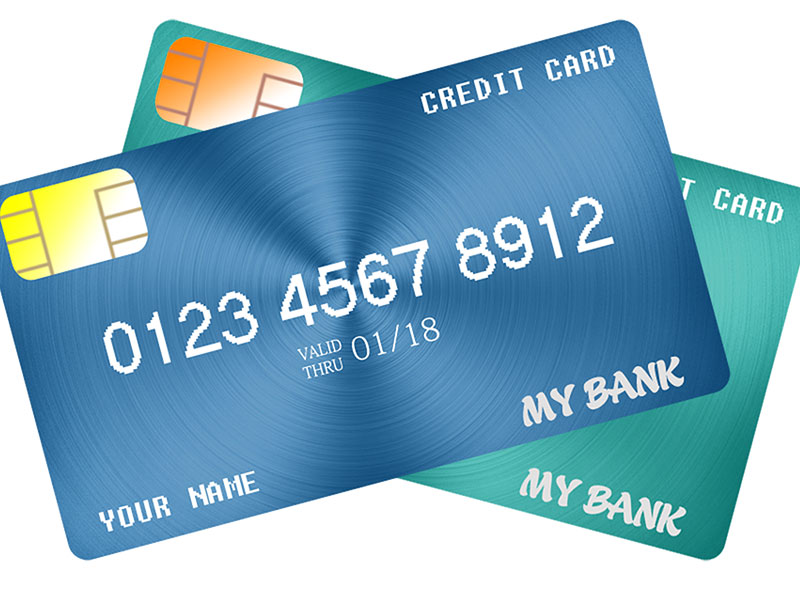
Millions of individuals live with poor credit scores. Unfortunately, that means they pay higher interest rates when borrowing — if they can secure financing at all. The truth is that poor credit can keep people like you from buying a home or new car, and, in many cases, it results in existing debt spiraling out of control.
The good news is that there are ways to build new or repair damaged credit. How you choose to build your credit will depend on your unique situation and financial needs. However, these seven examples are excellent credit builder tools for many people, and they may work for you, too.

Table of Contents
1. Take Out a Credit Builder Loan
If you are looking for a powerful tool that will not only help you build credit but also serve as a way to save money, then a credit builder loan may be a good choice. These loans help individuals looking to build credit, so you are more likely to get approved for one than another type of account. However, don’t expect to spend the money you borrow.
When you open one of these loans, you deposit the loan amount into a particular account, where it stays until the loan matures. During that time, you make payments against the borrowed amount. At the end of your term, usually 12 to 24 months, you will get the money and any accrued dividends back, minus any interest or fees.
2. Pay Your Bills on Time
Credit builder loans work because they establish a record of on-time payments, which can boost your credit score. In fact, the Federal Deposit Corporation reports that on-time payments account for up to 35% of your total score, so you want to be careful about making on-time payments. That doesn’t just apply to loans, either. Paying everything from rent to credit card bills to utilities on time will help you build a good credit history.
3. Clean Up Your Credit Report
Another approach that can help, especially if there are fraudulent or old accounts listed, is to review your credit report. Consumers can receive one free copy of their credit report each year from each of the three major reporting bureaus. Always request your reports directly through the Federal Trade Commission’s approved site to avoid scams or unnecessary fees.
Once you have current credit reports in hand, go through them line by line. You’ll want to verify that each account is yours and that the payment history for each is correct. If there are delinquent accounts, check to see that they are your responsibility. If so, work with the companies to get them back into favorable status. Most importantly, you must report any errors immediately to ensure they are investigated and corrected.
Some financial experts recommend that you review your credit report every several months to catch any new issues quickly. One way to do this economically is by requesting them from a new bureau every three to four months.
4. Become an Authorized User
Even if you cannot get an account of your own, you may still be able to build an account history by becoming an authorized user on someone else’s credit card account. This works like a credit builder for several reasons. First, you benefit from their on-time payments history. You can also build up an account history with whichever financial institution the card is with.
Ask family members you trust (and who pay their bills on time) if they are willing to add you to an account or two. If they are hesitant, ask if they would consider doing it and not giving you physical access to the account. This may give them the extra peace of mind to say yes.
5. Ask for a Credit Line Increase
Credit utilization is a fancy way of saying how much of each credit line you are using. In general, you want this to be as low as possible. If you can keep credit line utilization under 10% for each credit card or line of credit, it will reflect the most favorably on your report.
If your percentages are higher, one easy solution is to request a higher credit limit on your accounts. There is usually no penalty for making a request, and you may be able to drop your utilization rate considerably. One caveat is that you do not want to run the debt up higher just because you have a higher limit.
6. Get Credit for Paying Your Bills
Most of your monthly bills are never reported to the credit bureaus, which means that even if you consistently pay them on time, they are not helping to build a solid credit history. Luckily, there are several new tools to help minimize this problem.
Experian offers a free service that reports monthly bills, such as those for utilities or a cell phone, so that you get credit for them. They also have a rent payment reporting tool. These and other similar services can effectively build a positive payment history on your credit profile, increasing scores.
7. Open a Secured Credit Card
Many people are a little gun-shy when it comes to credit cards. That is entirely understandable if they contributed to your credit trouble. However, responsible and strategic use of credit cards is a great way to build credit, which makes secured credit cards such a great credit builder.
A secured card works like a debit card, except that the card provider reports payments to the major credit bureaus. You deposit money into an account, guaranteeing your spending on the card. So, if you don’t have the money to pay the bill, you cannot make the purchase. In addition to building your credit history with on-time payments, it can also help you learn to better manage credit cards going forward.
Take Charge With a Credit Builder Today
Fiscal Tiger is your one-stop resource for credit building and repair information. We have put together a comprehensive trove of financial resources to help you build up a new credit profile or recover from past financial mistakes. Visit us today to find your credit builder tools.





